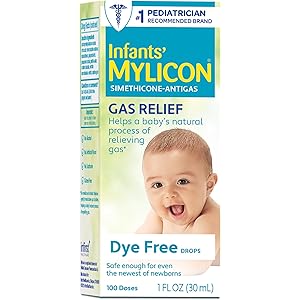Amazon Basics 2-Ply Soft Toilet Paper, 30 Rolls (5 Packs of 6), Equivalent to 185 Regular Rolls, Packaging May Vary
$25.21 (as of September 29, 2025 15:19 GMT +00:00 - More infoProduct prices and availability are accurate as of the date/time indicated and are subject to change. Any price and availability information displayed on [relevant Amazon Site(s), as applicable] at the time of purchase will apply to the purchase of this product.)Understanding Medical Jargon: The Basics
Medical jargon can often feel like a foreign language, especially for expectant parents navigating the complexities of pregnancy. Understanding medical jargon is essential for making informed decisions about healthcare. This specialized vocabulary includes terms that describe medical conditions, procedures, and treatments that are commonly encountered during pregnancy. Familiarizing yourself with these terms can empower you to engage in meaningful conversations with healthcare providers and advocate for your own health and that of your baby.
Common Terms in Pregnancy
During pregnancy, you may come across various terms that are crucial to your understanding of prenatal care. For instance, terms like “gestation,” which refers to the period of development from conception to birth, and “ultrasound,” a procedure that uses sound waves to create images of the baby in the womb, are frequently used. Knowing these terms helps demystify the medical processes involved in pregnancy and allows you to feel more confident during appointments.
Understanding Diagnostic Tests
Diagnostic tests are an integral part of prenatal care, and understanding medical jargon related to these tests can alleviate anxiety. Terms such as “amniocentesis,” a procedure to sample amniotic fluid for genetic testing, and “glucose tolerance test,” which screens for gestational diabetes, are vital for monitoring the health of both mother and baby. Being informed about these tests enables you to ask pertinent questions and understand the implications of the results.
Common Pregnancy Complications
Pregnancy can come with its share of complications, and understanding medical jargon associated with these issues is crucial. Terms like “preeclampsia,” a condition characterized by high blood pressure and potential organ damage, and “placenta previa,” where the placenta covers the cervix, are important to recognize. Knowing these terms can help you identify warning signs and seek timely medical attention if necessary.
Medications and Treatments
Expectant mothers often have questions about medications and treatments during pregnancy. Understanding medical jargon related to pharmaceuticals, such as “teratogenic,” which refers to substances that can cause birth defects, and “antibiotics,” which are used to treat infections, is essential for making safe choices. Being knowledgeable about these terms allows you to discuss medication options with your healthcare provider confidently.
Labor and Delivery Terminology
As you approach labor and delivery, familiarizing yourself with the jargon used in this phase can ease apprehension. Terms like “epidural,” a common form of pain relief during labor, and “cervical dilation,” which refers to the opening of the cervix in preparation for childbirth, are frequently mentioned. Understanding these terms can help you prepare for the birthing process and make informed decisions about your delivery plan.
Postpartum Care Vocabulary
After the baby arrives, understanding medical jargon related to postpartum care is equally important. Terms such as “lochia,” the vaginal discharge following childbirth, and “postpartum depression,” a mood disorder that can affect new mothers, are essential for recognizing what to expect during recovery. Being aware of these terms can help you seek support and resources as you transition into motherhood.
Resources for Learning Medical Jargon
There are numerous resources available to help expectant parents learn medical jargon. Websites, books, and prenatal classes often provide glossaries of common terms and their meanings. Utilizing these resources can enhance your understanding and prepare you for discussions with healthcare professionals. Additionally, don’t hesitate to ask your doctor or midwife to explain any terms you find confusing during your appointments.
The Importance of Communication
Effective communication with your healthcare provider is vital during pregnancy. Understanding medical jargon not only helps you comprehend your care but also enables you to express your concerns and preferences clearly. Remember, it’s always okay to ask for clarification on any terms or procedures you don’t understand. Your health and the health of your baby depend on clear and open communication.



